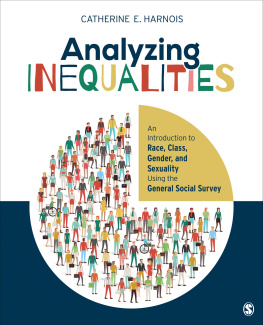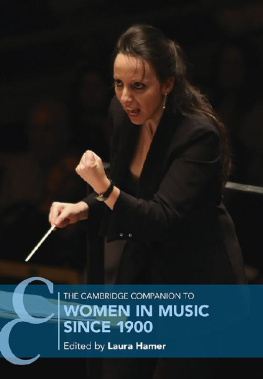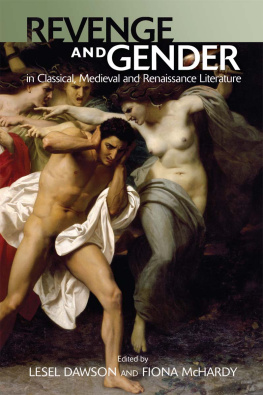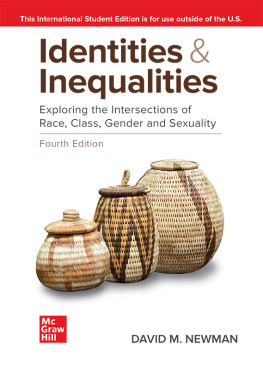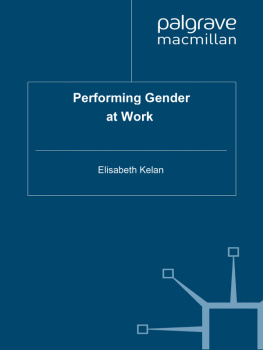This is a beautifully written and compelling account of what it is like to work in the classical music profession. Written with admirable clarity and great insight, the book makes a major contribution to our understanding of gendered subjectivity in the workplace, and also to the growing field of studies of creative labour. A magnificent book that deserves to become essential reading.
Rosalind Gill, Professor of Cultural and Social Analysis, City University of London, UK
This is a dazzling and important book. Meticulously researched, Scharff documents the ways in which female classical musicians experience their own professional identities and how they become entrepreneurial subjects. Scharff plays close attention to the texture of inequities in this milieu, and to how competition takes specifically gendered forms. The book is a major contribution to creative economy studies, to sociology, social psychology and gender studies.
Angela McRobbie Professor of Communications, Goldsmiths University of London, UK
Christina Scharffs book is a superbly thoughtful and insightful feminist study of women musicians in two contrasting cities, and it is also a major contribution to studies of creative labour. It shows how cultural workers are required to be entrepreneurs and skilfully reveals how this contributes to workplace inequalities.
David Hesmondhalgh, Professor of Media, Music and Culture, University of Leeds, UK
Gender, Subjectivity, and Cultural Work
What is it like to work as a classical musician today? How can we explain ongoing gender, racial, and class inequalities in the classical music profession? What happens when musicians become entrepreneurial and think of themselves as a product that needs to be sold and marketed?
Gender, Subjectivity, and Cultural Work explores these and other questions by drawing on innovative, empirical research on the working lives of classical musicians in Germany and the UK. Indeed, Scharff examines a range of timely issues such as the gender, racial, and class inequalities that characterise the cultural and creative industries; the ways in which entrepreneurialism as an ethos to work on and improve the self is lived out; and the subjective experiences of precarious work in so-called creative cities. Thus, this book not only adds to our understanding of the working lives of artists and creatives, but also makes broader contributions by exploring how precarity, neoliberalism, and inequalities shape subjective experiences.
Contributing to a range of contemporary debates around cultural work, Gender, Subjectivity, and Cultural Work will be of interest to scholars and students in the fields of sociology, gender, and cultural studies.
Christina Scharff is Senior Lecturer in Culture, Media, and Creative Industries at Kings College London.
Routledge Research in Gender and Society
For a full list of titles in this series, please visit www.routledge.com
54Changing Names and Gendering Identity
Social Organisation in Contemporary Britain
Rachel Thwaites
55Genealogies and Conceptual Belonging
Zones of Interference between Gender and Diversity
Eike Marten
56Black Women, Agency, and the New Black Feminism
Maria del Guadalupe Davidson
57Marginalized Masculinities
Contexts, Continuities and Change
Edited by Chris Haywood and Thomas Johansson
58Equality Struggles
Womens Movements, Neoliberal Markets and State Political Agendas in Scandinavia
Mia Liinason
59Gender, Subjectivity, and Cultural Work
The Classical Music Profession
Christina Scharff
60The Conundrum of Masculinity
Hegemony, Homosociality, Homophobia and Heteronormativity
Chris Haywood, Thomas Johansson, Nils Hammarn, Marcus Herz and Andreas Ottemo
61Body Image as an Everyday Problematic
Looking Good
Flix Daz Martnez
First published 2018
by Routledge
2 Park Square, Milton Park, Abingdon, Oxon OX14 4RN
and by Routledge
711 Third Avenue, New York, NY 10017
Routledge is an imprint of the Taylor & Francis Group, an informa business
2018 Christina Scharff
The right of Christina Scharff to be identified as author of this work has been asserted by her in accordance with sections 77 and 78 of the Copyright, Designs and Patents Act 1988.
All rights reserved. No part of this book may be reprinted or reproduced or utilised in any form or by any electronic, mechanical, or other means, now known or hereafter invented, including photocopying and recording, or in any information storage or retrieval system, without permission in writing from the publishers.
Trademark notice: Product or corporate names may be trademarks or registered trademarks, and are used only for identification and explanation without intent to infringe.
British Library Cataloguing-in-Publication Data
A catalogue record for this book is available from the British Library
Library of Congress Cataloging-in-Publication Data
A catalog record for this book has been requested
ISBN: 978-1-138-94256-1 (hbk)
ISBN: 978-1-315-67308-0 (ebk)
Typeset in Times New Roman
by Apex CoVantage, LLC
I am deeply grateful to the 64 female musicians who took part in this research. I would like to thank all research participants for taking the time to talk to me, share their views, beliefs, and feelings, as well as direct me to colleagues I could interview. It was a great privilege and pleasure to meet so many musicians and gain insight into their working lives. My thanks also go to Trudy White, Patrick Haighton, Anna Bull, Matthias Stoffels, Robin Hoffmann, and Annesley Black, who put me in touch with research participants at the beginning of the project and got the ball rolling.
I would not have been able to conduct this research without a small grant from the British Academy (SG120354) and the Economic and Social Research Councils (ESRC) Future Research Leaders scheme. The ESRC grant (ES/K008765/1) gave me the precious gift of research time, especially for the analysis, writing up, and dissemination of my findings. Both grants covered expenses occurring at various stages in the research, ranging from transcription and data collection to copy-editing. My special thanks go to Anne Koch and Anika Meier for transcribing the interviews; Brigid McClure and Fiona Wright for tirelessly clicking through websites to gain information about the demographic makeup of British orchestras and teaching staff at German and UK conservatoires; and to Patrizia Kokot-Blamey and John Kokot-Blamey for analysing the quantitative data featured in this book and generously sharing their expertise, wit, and insight. Towards the end of the project, Yvonne Ehrstein provided invaluable assistance with note taking, referencing, and copy-editing. I would not have been able to finish this book on time without her reliable help, attention to detail, as well as constructive and co-operative attitude. I really value and appreciate the hard work she has done, which I know requires a lot of technical knowhow, expertise, and concentration. I would also like to thank Sara De Benedictis for proofreading my manuscript so carefully and for accommodating my rather tight schedule. Finally, I have enjoyed co-operating with Routledge. It has been a real pleasure to work with my editors Emily Briggs and Elena Chiu and I am grateful for their support throughout the publication process.


